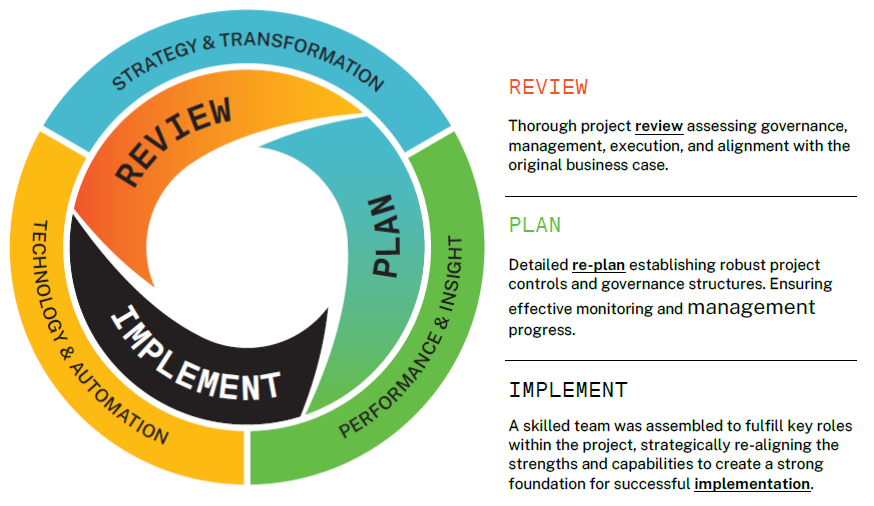Exent rescued a TechnologyOne implementation for an aged care provider, overcoming setbacks and successfully implementing three ERP phases on time and under budget through a focused approach on Capability, Control, and Governance.
CHALLENGE
A significant investment for the implementation of TechnologyOne was made by an award-winning, not‑for-profit aged care service provider in Australia. The aim of the project was to optimise and streamline the finance, human resources, payroll, and procurement systems. However, the project, which commenced in March 2019, and was originally scheduled to conclude by June 2021, encountered significant setbacks in meeting business requirements and achieving the expected return on investment.
Exent was brought in to assess the current state of the project, to set up robust governance structures, deliver the remaining systems functionality, and realise much needed business benefits for our client.
Exent’s assessment revealed 90% of the project budget had been exhausted, with 100% of the duration consumed and, critically, only 34% of the promised ERP functionality had been assessed as effective and fully implemented, representing a major gap.
Unfortunately, despite the sizeable investment, the project had thus far failed to deliver any notable benefits or return on investment to the organisation and needed immediate intervention. In response to the urgent need to turnaround this project, Exent quickly set to work on corrective action. Under the guidance of an experienced project team, robust governance structures were created, including transparent executive-level reporting, risk identification and mitigation strategies, optimised resource planning, while a realistic and achievable roadmap for successful project completion was re-baselined.


